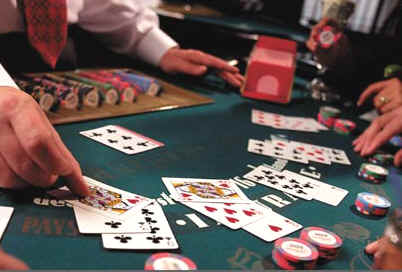
Compulsive gambling appears to be just as much a physical disorder as drug addiction. And the same medications can effectively treat both conditions.
Nearly 1 in 50 Americans (that’s 6 to 8 million) may be currently classified as problem gamblers, and success rates for even the most popular related treatments are discouragingly low. But a new study implies that the same neurological mechanisms that lead some to develop chronic drug problems may also facilitate gambling addictions. This is welcome news, because medications that remedy drug dependence by altering subjects’ brain chemistry have also proven effective in treating compulsive gambling.
Researchers at the University of Minnesota recruited approximately 300 subjects who’d reported gambling problems for three independent studies. They first divided participants into two groups: those who were driven by occasional, irresistible urges and those who could not restrain their desire to bet under any circumstances and ended up acting on even the slightest need to gamble.
The overwhelming urges that lead to binge gambling appear to be created by abnormal floods of opiates in the brain. Subjects who suffered from this sort of behavior responded well to opioid inhibitor drugs like Naltrexone, which is most commonly prescribed to subjects dependent on alcohol or heroin.
The second group found greater success using drugs designed to restrain the activity of a specific enzyme in the prefrontal cortex, a part of the brain often closely associated with addiction and compulsive behavior.
Positive effects were even more pronounced among subjects with family histories of addiction, and this finding strengthens the case for problem gambling as evidence of a compulsive personality type most likely genetic in nature.
Addiction is a complex equation that goes well beyond any physical dependence on a specific drug or behavior, and many addictions that seem to be completely unrelated do, in fact, start with the very same chemical reactions in the brain.